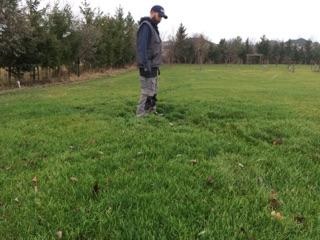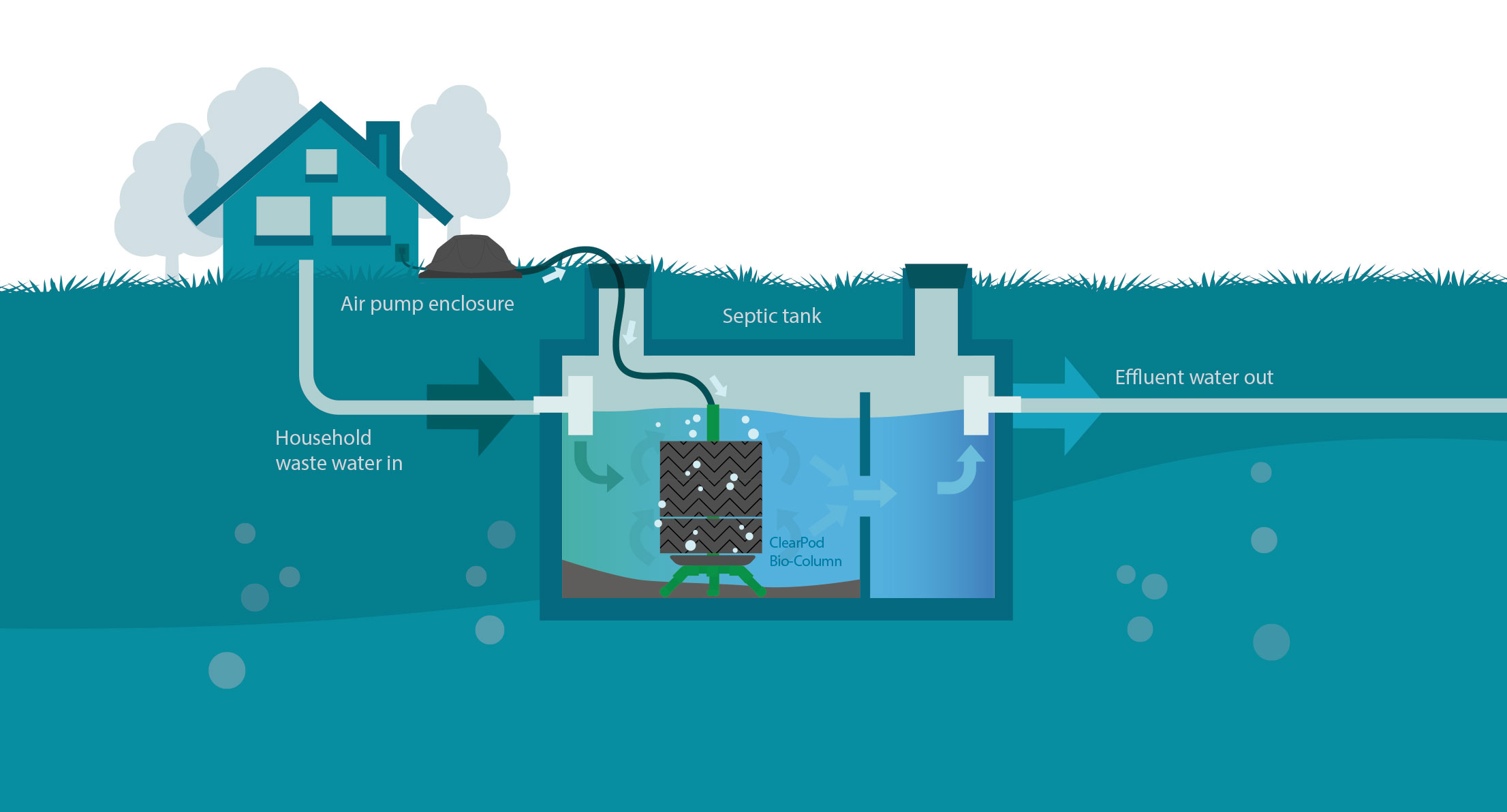The secrets on how to improve your septic system
The secret to a good septic system!!
We all like to forget that our septic system even exists most of the time. Out of sight is truly out of mind!!
When you have a septic system that isn’t working well it can become a complete nightmare situation. Foul odor, water backing up in the home and perhaps contaminated wastewater ponding in your lawn!!
To make everything very clear our in-house septic system expert, Mr. Michael Deighan provides insights as to how to keep your septic system working well so you never have these issues!!!
1: Regular Pumping
We don’t always think about our septic system as it’s buried in the ground and it’s often not a problem until it’s too late. When the sludge layer is within 12 inches, or the FOG (Fats, Oils, Grease) layer is within 3 inches of your outlet pipe, your septic tank should be pumped. It’s hard to think of everything, but it’s very important to schedule regular pumping of your septic system, it will save you thousands of dollars overall. Avoiding pumping your system will inevitably result in a catastrophic failure. As the solids build up in your septic system, there is a reduction in solids settling and an increased chance of short-circuiting and reduced treatment. If you pump your system regularly, you will maintain optimal performance and increase the lifetime of your septic system.
2: Regular Inspection
Trust your industry professional and their recommendations. Have them come out an annual basis to assess the health of your septic system and ensure it is functioning properly. These regular inspections allow you to catch a problem before it’s too late. An ounce of prevention is truly worth a pound of cure.
3: Keep Accurate records
It is important to keep accurate records about your septic system including the following:
– Pumping record
– Maintenance record
– Updated drawings of septic system location
These types of records will make it easier when selling your home, performing septic system maintenance, and performing renovations on your property.
4: Reduce Water Consumption
Increased flow to your septic system overloads the system and therefore the leachfield. You can avoid overloading your septic system and leachfield by using high efficiency fixtures such as toilets, high efficiency shower heads, washers/dryers, and dishwashers. Reducing water use is good for your septic system and good for the environment.
5: Things you should avoid putting into your system:
-Fats or Grease
-Motor Oils or Fuels
-Disposable Papers
-Coffee grounds, egg shells and nutshells
-Feminine Hygeine Products
-Paper towels or Rags
-Paints or Chemicals
6: Improve your septic system design:
Traditional septic systems have treated household wastewater for over half a century. The longevity of traditional septic system ranges between 10-25 years. One of the main purposes of your septic tank is for the settling of large solids. If you want to improve the existing septic system infrastructure, you can utilize the existing septic tank by adding an aerobic treatment unit improve your overall system performance. ClearPod is a drop-in, fixed film aerobic treatment provides onsite wastewater treatment utilizing existing infrastructure. It reduces the organic solids by 85%, increases system performance and the longevity of the system. If there is a flash load of solids because you are entertaining a large crowd, an aerobic treatment unit can help with treating the organic load and reduce the impact on the overall system.
ClearPod is a low-cost, drop-in solution that cleans the wastewater in the septic tank!
Cleaner water leaving the septic tank means less stress on the leachfield which allows the system to recover.
We ship ClearPod units direct to the homeowner.
Installation is easy and usually takes approximately 1 hour.
7: Avoid poisoning your septic tank:
Chemicals such as drain cleaners, toilet bowl cleaners, floor cleaners, paints, solvents, waxes, polishes, coatings, or strippers will kill the beneficial bacteria in your septic tank and significantly reduce your system’s ability to treat your wastewater. These chemicals have the potential to end up percolating through the soil and contaminating the environment and groundwater resources.
8: The 3 P’s:
Parking:
Make sure you or those visiting your house never park on your leachfield. This can damage infrastructure or compact the soil layer and no longer allow water to percolate freely through the Soil
Planting:
When planting trees, ensure that you leave space for growth to avoid future root intrusion into your leachfield
Placing:
Ensure to place roof drains, sump pumps, and other drainage systems down gradient of your septic system. This excess water interferes with the wastewater treatment process.
Sources:
https://www.epa.gov/septic/how-care-your-septic-system
https://www.flohawks.com/resources/septic-care-tips.asp
For more information and request information on purchase and direct shipping call Mike Deighan at +1 902 940 0836 or email mdeighan@islandwatertech.com



